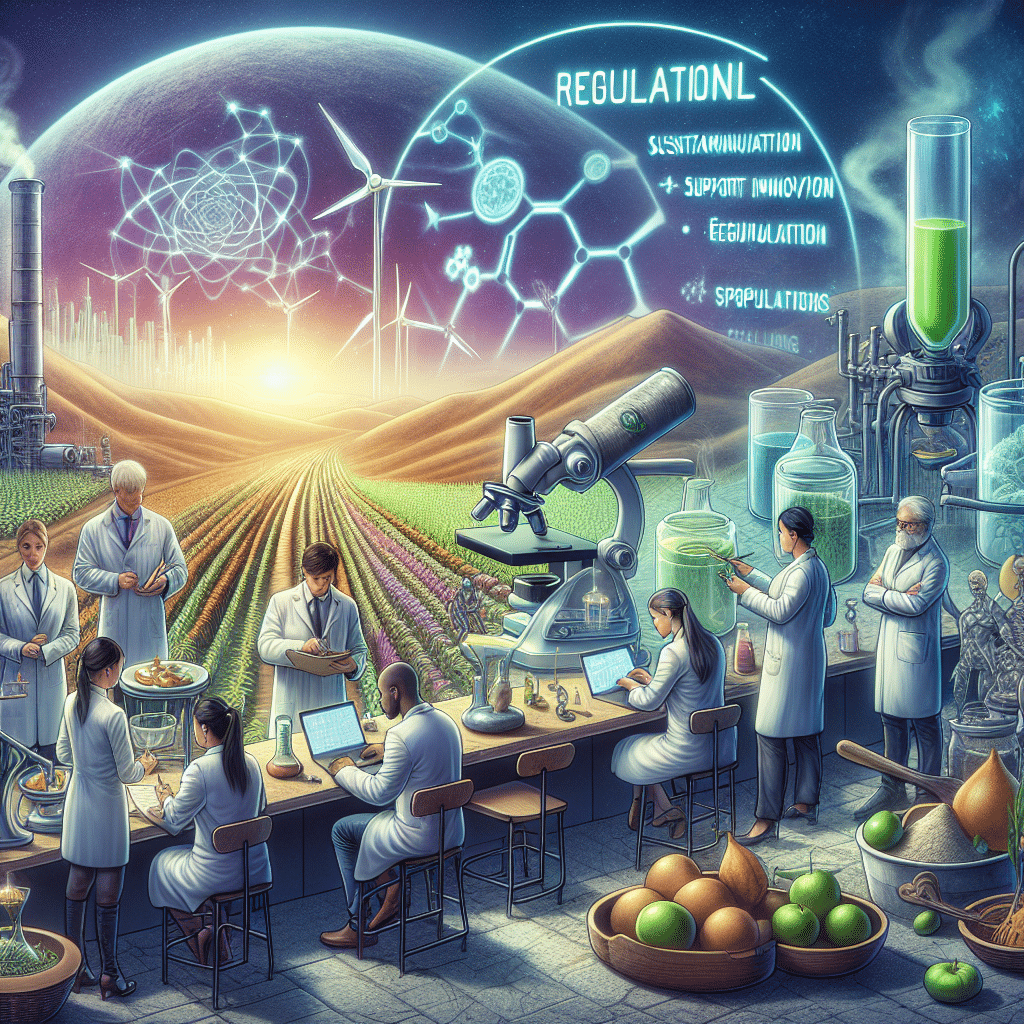Regulatory Innovation: Overcoming Food and Beverage Challenges
-
Table of Contents
- Regulatory Innovation in Food and Beverage: Navigating Industry Challenges
- Understanding the Regulatory Landscape
- Challenges in Food and Beverage Regulation
- Innovative Approaches to Regulation
- Case Studies of Regulatory Innovation
- Impact of Regulatory Innovation on the Industry
- Future Trends in Regulatory Innovation
- Conclusion: Embracing Regulatory Innovation
- ETChem’s Protein Products: Meeting Industry Standards
Regulatory Innovation in Food and Beverage: Navigating Industry Challenges
The food and beverage industry is a dynamic and ever-evolving sector, facing a myriad of challenges ranging from safety regulations to sustainability concerns. As consumer demands shift towards healthier, more natural products with transparent sourcing, companies must adapt to stay competitive. Regulatory innovation plays a crucial role in overcoming these challenges, ensuring that products not only meet legal standards but also align with consumer expectations and environmental responsibilities.
Understanding the Regulatory Landscape
Before delving into the specifics of regulatory innovation, it’s essential to understand the current regulatory landscape governing the food and beverage industry. This includes international standards like the Codex Alimentarius, as well as national and regional regulations such as the FDA in the United States, EFSA in the European Union, and other local food safety authorities.
- Food Safety and Quality Standards
- Labeling Requirements
- Environmental and Sustainability Regulations
- Health Claims and Nutritional Information
Challenges in Food and Beverage Regulation
The industry faces several challenges that regulatory innovation aims to address:
- Keeping up with rapidly changing consumer trends and preferences.
- Ensuring compliance with a complex web of international, national, and local regulations.
- Adapting to advances in food science and technology.
- Managing the costs associated with regulatory compliance.
- Addressing sustainability and ethical sourcing concerns.
Innovative Approaches to Regulation
Regulatory bodies and companies are adopting innovative approaches to tackle these challenges:
- Implementing digital solutions for compliance monitoring and reporting.
- Developing new frameworks for novel foods and ingredients.
- Engaging in public-private partnerships to streamline regulatory processes.
- Utilizing big data and AI to predict and manage food safety risks.
- Encouraging sustainable practices through incentives and certifications.
Case Studies of Regulatory Innovation
Several case studies highlight the successful application of regulatory innovation:
- The FDA’s New Era of Smarter Food Safety initiative, which leverages technology and data analytics.
- The European Union’s Novel Food Regulation, which provides a clear pathway for bringing new and innovative products to market.
- Blockchain technology being used to enhance traceability and transparency in the supply chain.
Impact of Regulatory Innovation on the Industry
Regulatory innovation has a profound impact on the food and beverage industry:
- Improved food safety and reduced incidence of foodborne illnesses.
- Increased consumer trust through greater transparency and traceability.
- Enhanced ability for companies to bring innovative products to market quickly.
- Greater emphasis on sustainability and ethical practices.
Future Trends in Regulatory Innovation
Looking ahead, several trends are likely to shape the future of regulatory innovation:
- The rise of personalized nutrition and its regulatory implications.
- Continued focus on sustainability and the development of circular economy models.
- Greater international harmonization of food and beverage regulations.
- The potential for lab-grown or cultured foods to disrupt traditional regulatory frameworks.
Conclusion: Embracing Regulatory Innovation
In conclusion, regulatory innovation is essential for the food and beverage industry to navigate the complex challenges it faces. By embracing new technologies, frameworks, and partnerships, companies can ensure compliance, foster consumer trust, and contribute to a more sustainable future. The key takeaways from this article emphasize the importance of understanding the regulatory landscape, addressing industry challenges through innovation, and staying ahead of future trends.
ETChem’s Protein Products: Meeting Industry Standards
ETChem’s protein products stand out in the food and beverage industry for their quality and compliance with regulatory standards. Their range of collagens, including marine, fish, bovine, and chicken collagens, cater to various industry needs while ensuring safety and sustainability. By choosing ETChem, companies can confidently meet consumer demands for high-quality protein products that align with regulatory innovation and industry best practices.
About ETChem:
ETChem, a reputable Chinese Collagen factory manufacturer and supplier, is renowned for producing, stocking, exporting, and delivering the highest quality collagens. They include marine collagen, fish collagen, bovine collagen, chicken collagen, type I collagen, type II collagen and type III collagen etc. Their offerings, characterized by a neutral taste, instant solubility attributes, cater to a diverse range of industries. They serve nutraceutical, pharmaceutical, cosmeceutical, veterinary, as well as food and beverage finished product distributors, traders, and manufacturers across Europe, USA, Canada, Australia, Thailand, Japan, Korea, Brazil, and Chile, among others.
ETChem specialization includes exporting and delivering tailor-made collagen powder and finished collagen nutritional supplements. Their extensive product range covers sectors like Food and Beverage, Sports Nutrition, Weight Management, Dietary Supplements, Health and Wellness Products, ensuring comprehensive solutions to meet all your protein needs.
As a trusted company by leading global food and beverage brands and Fortune 500 companies, ETChem reinforces China’s reputation in the global arena. For more information or to sample their products, please contact them and email karen(at)et-chem.com today.





